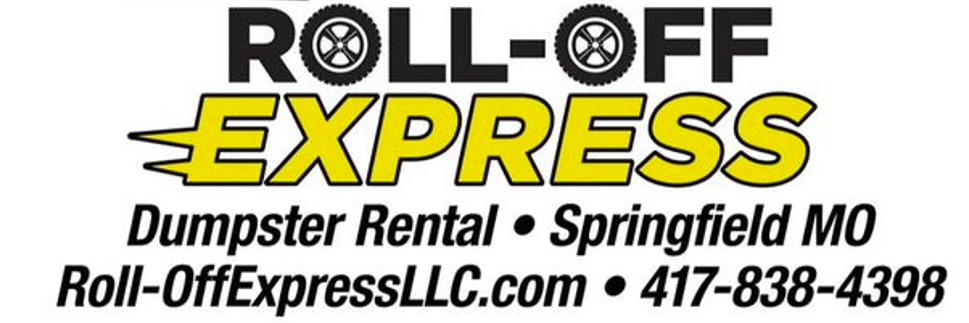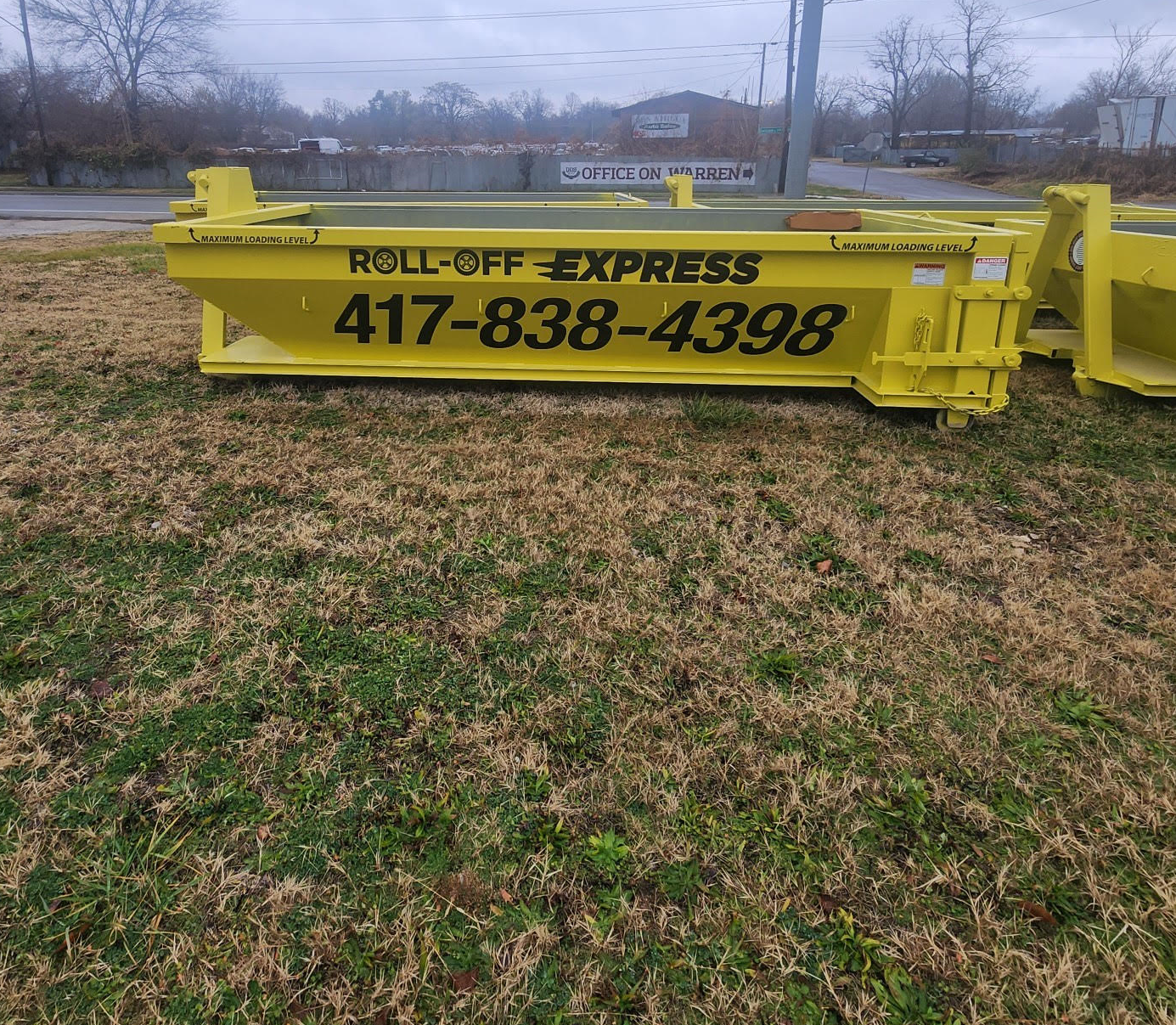Renting a 12-yard roll-off dumpster can be an efficient way to manage waste, yet costs can vary significantly. While you might find an attractive base price, hidden fees and factors like location can quickly change the game. Understanding these nuances is key to making an informed decision. So, what exactly influences the cost, and how can you ensure you’re getting the best deal? Let’s explore.
Understanding Roll-Off Dumpsters
When it comes to managing waste, understanding roll-off dumpsters can make your project much easier.
These large containers are designed for heavy-duty waste disposal, making them ideal for renovations, construction sites, or major cleanouts. You’ll typically find them in various sizes, with the 12-yard option being a popular choice for medium-sized projects.
Roll-off dumpsters have an easy loading design, allowing you to simply roll them off a truck and place them where you need them. Their open top makes it convenient to toss in debris without hassle.
When you’re done, the rental company will pick it up and handle the disposal, saving you time and effort.
Knowing the dimensions and weight capacity of the 12-yard dumpster helps ensure you choose the right one for your needs.
This understanding not only streamlines your waste management process but also helps avoid potential overage fees.
Benefits of Renting a 12-Yard Dumpster
Renting a 12-yard dumpster offers several advantages that can simplify your waste disposal process.
- Ideal Size for Medium-Sized Projects: The size is perfect for medium-sized projects, whether you’re renovating your home or cleaning out your garage. You’ll have enough space to handle various materials without the hassle of multiple trips to the landfill. This is especially beneficial when using roll-off dumpsters, which provide easy loading and unloading.
- Work Area Organization and Safety: Having a dumpster on-site keeps your work area organized and safe, reducing clutter and minimizing the risk of accidents. This convenience allows you to focus more on your project and less on waste management.
- Flexible Rental Periods: The flexibility in rental periods means you can keep the dumpster for as long as you need without feeling rushed. This flexibility is a key reason why many people choose to rent a dumpster for their projects.
- Convenient Logistics: Most rental companies handle all the logistics, including delivery and pickup, saving you time and effort.
- Efficiency and Manageability: Ultimately, renting a 12-yard dumpster streamlines your disposal process, making your project more efficient and manageable.
Factors Influencing Cost
The convenience of having a 12-yard dumpster comes with various factors that influence its overall cost.
- Location: Your location plays a significant role; prices can vary based on local demand and landfill fees. If you’re in a metropolitan area, expect higher costs compared to rural locations.
- Rental Duration: The rental duration affects pricing. Longer rentals generally cost more, so plan your project timeline wisely.
- Type of Debris: the type of debris you’re disposing of matters. Certain materials, like hazardous waste, can incur extra fees or require specialized disposal methods.
- Delivery and Pick Up Charges: Don’t overlook delivery and pick-up charges. Some dumpster rentals companies include these in the base price, while others may add them separately.
Average Rental Prices
On average, you can expect to pay between $300 and $500 for a 12-yard roll-off dumpster rental. This range typically covers a rental period of about one week, but prices can vary depending on your location and the rental company.
Here’s a quick breakdown of what influences those average costs:
- Location: Prices can differ significantly from one city to another.
- Rental Duration: Longer rental periods might cost more; some companies charge extra for each additional day.
- Type of Waste: Certain materials may incur higher disposal fees, impacting overall costs.
- Availability: During peak seasons, demand increases, potentially raising rental prices.
Additional Fees to Consider
While you might think the rental price is all you’ll pay, there are several additional fees to keep in mind when renting a 12-yard roll-off dumpster.
First, consider weight overages; if your debris exceeds the weight limit, you’ll incur extra charges.
Next, check for potential environmental fees, which some companies impose for disposing of specific materials, like electronics or hazardous waste.
Delivery and pickup fees may also apply, especially if your rental location is far from the company’s base.
Additionally, some companies charge for extended rental periods, so be sure to confirm the standard rental duration to avoid surprises.
If you need to change your reservation or cancel, be aware that this might come with its own fees.
Rental Duration and Pricing
When renting a 12-yard roll-off dumpster, you’ll typically encounter a standard rental period of seven to ten days. This time frame allows you to manage your project efficiently without feeling rushed.
However, the total cost often reflects the rental duration. Here’s what to keep in mind:
- Base Rate: Most dumpster rentals companies charge a flat fee for the standard rental period.
- Daily Rates: If you need the dumpster longer, you may incur additional daily charges.
- Flexibility: Some companies offer extended rental options at a discounted rate, so inquire about that.
- Local Variations: Prices can vary based on your location, so always compare rates from multiple providers.
Weight Limits and Overages
Understanding weight limits is crucial for your 12-yard roll-off dumpster rental, as exceeding them can lead to unexpected overage fees.
Typically, a 12-yard dumpster can hold around 2 to 3 tons of waste. However, this limit varies by rental company, so always check your specific terms.
If you fill your dumpster beyond this weight limit, you’ll face additional charges, which can add up quickly.
These overage fees often depend on how much you exceed the limit, so weigh your materials before disposal. To avoid surprises, consider sorting and estimating the weight of your debris.
Location-Based Pricing Variations
Because dumpster rental prices can vary significantly based on location, it’s essential to consider where you’ll be using the 12-yard roll-off dumpster.
Different regions have varying costs due to factors like demand, local regulations, and disposal fees.
Here are some key factors that influence location-based pricing:
- Urban vs. Rural Areas: Urban locations often see higher prices due to demand and limited space.
- Local Regulations: Some cities have stricter regulations that can increase rental costs or require permits.
- Disposal Fees: Landfills near you may charge different rates based on their operational costs.
- Seasonal Demand: Prices can fluctuate with seasonal projects, like spring cleaning or renovations, affecting availability and cost.
Types of Materials Accepted
A 12-yard roll-off dumpster can handle a variety of materials, making it a versatile choice for your waste disposal needs. You can use it for general household waste, including old furniture, appliances, and renovation debris. It’s perfect for yard waste, like branches and grass clippings, too.
However, there are some restrictions. You can’t toss in hazardous materials, such as chemicals, paints, or batteries. Most companies also discourage dumping tires or electronics. Always check with your rental provider for specific guidelines to avoid any extra fees.
When you’re ready to book, knowing what materials you can discard will streamline the process. This way, you’ll maximize the dumpster’s capacity while complying with local regulations.
Comparing Different Rental Companies
When you’re looking for the best deal on a 12-yard roll-off dumpster, comparing different dumpster rentals companies can save you both time and money.
Here’s what to consider when evaluating your options:
- Pricing: Get quotes from multiple companies to find competitive rates, including delivery and disposal fees.
- Rental Terms: Check the rental period and any extra charges for extended time. Some companies offer flexible terms, which can be beneficial.
- Customer Reviews: Look for feedback on reliability and service quality. Positive reviews can indicate a trustworthy provider.
- Hidden Fees: Ask about additional costs, such as fuel surcharges or weight overages, to avoid surprises on your final bill.
Tips for Budgeting Your Dumpster Rental
How can you effectively budget if you’re planning to rent a dumpster? Start by determining the scope of your project. Estimate the amount of debris you’ll need to dispose of, as this helps you choose the right size dumpster.
Next, compare prices from different rental companies. Don’t just look at the base cost; consider additional fees for delivery, pickup, and overweight charges. To avoid surprises, ask about any restrictions on what you can throw away.
Additionally, plan your rental period wisely. Longer rentals can lead to extra costs, so try to stick to your timeline. It’s also smart to keep a buffer amount in your budget for unexpected expenses.
Finally, read reviews or ask for recommendations to find a trustworthy service. By being proactive and informed, you’ll ensure your dumpster rental fits your budget without unnecessary stress.
Final Thoughts on Cost Efficiency
While budgeting for dumpster rentals might seem straightforward, keeping an eye on cost efficiency can save you significant money in the long run.
You want to ensure that you’re getting the best value for your investment. Here are some tips to help you maximize cost efficiency:
- Compare Prices: Don’t settle for the first quote. Check multiple providers for the best deal.
- Know Your Needs: Choose the right size dumpster to avoid overpaying for unnecessary space.
- Plan Ahead: Schedule your rental during off-peak times to potentially lower costs.
- Avoid Extra Fees: Familiarize yourself with weight limits and prohibited items to prevent unexpected charges.

